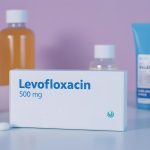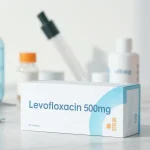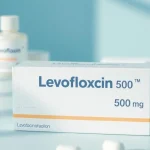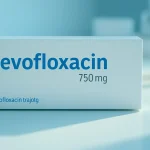It is one of the standard antibiotics reported to be useful in treating various diseases.
The query that is often presented by the sufferers is how long does levofloxacin take to work? Such antibiotic is prescribed on a regular basis and covers such diseases as urinary tract infections, sinusitis, bronchitis, etc.
It is essential to know its dose the mechanism through which it acts and the results expected of it to be successfully treated.
What is levofloxacin?
It is an artificial broad-spectrum antibiotic of the class that deals with fluoroquinolone and is sometimes known under quinolone antibiotics. It is powerful against a variation of bacterial infections by restraining the enzymes that are required in the bacterial reproduction of DNA.
Sufferers regularly think, is levofloxacin a strong antibiotic? The solution is yes, it’s taken into consideration strongly, especially in opposition to respiratory and urinary pathogens.
Curetypes recommends discussing opportunity treatment choices if side effects are intolerable or risk factors are present.
How does levofloxacin work
There is important to know about levofloxacin mechanism of action.
It is in bacterial inhibition of DNA gyrase and topoisomerase IV is necessary in DNA replication.
This will not allow the multiplication of bacteria causing them to lose their life.
The use of this effective process makes levofloxacin a strong antibiotic, and it is usually applied when other therapeutic measures have come to no effect or around tougher infections.
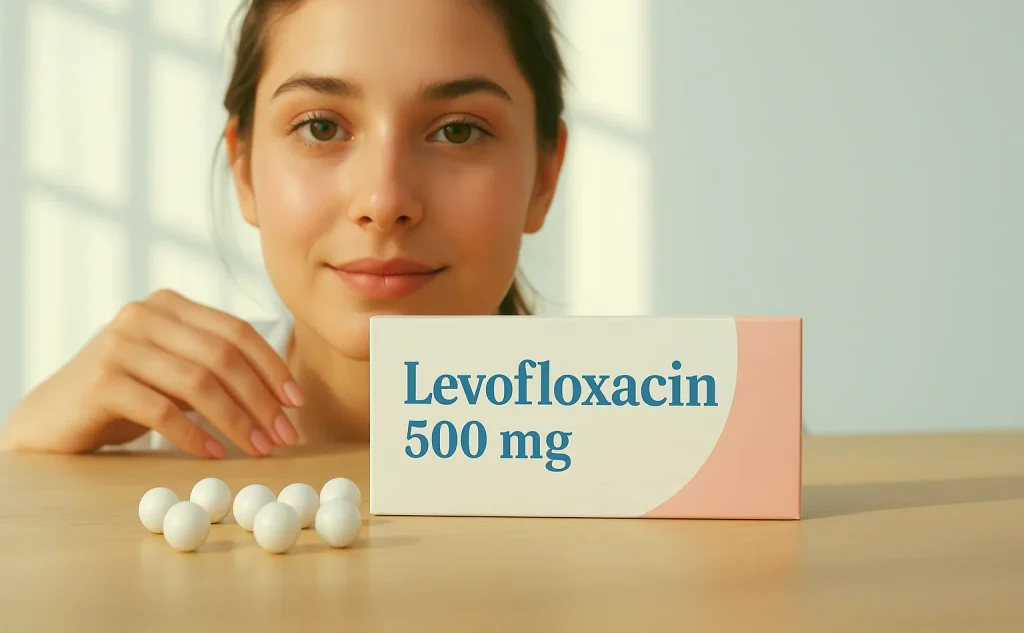
Active Ingredients
Its virile ingredient is levofloxacin hemihydrate which comes in various forms such as drugs (250 mg, 500 mg, and 750 mg), an oral solution, and an intravenous preparation.
The duration of levofloxacin 500 mg how long does it take to work is one that is influenced by the pill power you have prescribed and the symptom will normally begin decreasing in a time to three days.
Uses
It is specified for a broad assortment of needs:
- Urinary tract infections
- Acute pyelonephritis
- Acute bacterial sinusitis
- Chronic bacterial prostatitis
- Skin structure infections that include complex skin
- Commonly acquired pneumonia and nosocomial pneumonia
- Acute bacterial exacerbation of continual bronchitis
- Inhalation anthrax
- Pneumonic and septicemic plague
In most cases, the standard levofloxacin dosage for adults is between 250-750mg of levofloxacin per day based on the extent of contamination.
As an example, in a levofloxacin uti 3 days treatment, the improvement of symptoms is often observed during the first 48 hours.
How to Take It
With or without food, you may take it.
To maintain good hydration, sufferers are advised to consume plenty of liquids.
The dose of oral used also depends on the type of contamination and weight (in pediatric patients this is calculated per kg body weight).
The medication has to be used with milk or antacids since they interfere with absorption.
Always ensure you follow your doctor to the letter in order to ensure the medicine is effective in its operations.
Missed Dose
In case you forget an amount, take it as fast as you recognize.
Though, if it’s near to your next dose, pass the skipped one. Do not double up.
Lacking doses can affect how long levofloxacin 500 mg takes to work, and may prolong the infection.
Overdose
In the case of overdose, signs such as irregular heartbeat and mental alertness problems may additionally appear.
Reach emergency assistance or your doctor directly.
Overdose may also induce fainting spells and low blood sugar, in certain diabetic patients.
Precaution and caution
It must be used carefully in sufferers with
- Kidney disorder and liver disease
- Tendon rupture records or joint-related problems
- Peripheral neuropathy
- Myasthenia gravis
- Rheumatoid arthritis
- Risk elements for aortic aneurysm or liver injury
Patients are cautioned to limit exposure to natural or artificial sunlight, wear protective clothing, and keep away from extreme exercise during treatment to reduce the chance of tendon pain or tendon rupture peripheral neuropathy.
Due to its strength, humans frequently ask, is levofloxacin a strong antibiotic? Even as effective, it comes with risks that need to be controlled cautiously.
Side Effects
Like any drug, it can induce side outcomes, though not everybody brings them. The maximum suggested encompassing.
- Stomach pain
- Skin rash
- Vaginal itching
- Sudden pain in muscle tissues or joints
- Severe headache
- Allergic reactions
- Rapid heartbeat or irregular heartbeat
- Low blood sugar or high blood glucose levels
- Blurred vision
- Liver injury
- Tendon rupture
- Changes in the state of mental fitness such as anxiety or confusion.
Any of such symptoms should be handled medically, especially when they disrupt day-to-day life.
The FDA alerts and the Infectious Diseases Society recommend side effects monitoring throughout and thereafter the remedy.
Interactions
It might also interact with
Different drugs, especially antacids, NSAIDs, and corticosteroids
Antidiabetic tablets, which may push blood sugar changes
Dietary complements like iron or calcium
Drugs concerning mental alertness or heartbeat
Always inform your healthcare provider about recent medicinal drugs to keep away from unwanted effects.
Storage
Store it at room temperature, far away from natural daylight, and water, and out of reach of babies. Do not use after the expiration date and dispose of unused medicine nicely.
Conclusion
To answer the question levofloxacin 500 mg how long does it take to work, most sufferers start to word symptom remedy within 1–3 days, though full recovery may take the complete course duration.
As an example, in a levofloxacin uti 3 days plan, the effectiveness can be obtained in 48 hours in case the exact levofloxacin dosage for adults is followed.
Don’t forget, is levofloxacin n strong antibiotic? It is true. Through levofloxacin mechanism of action, it has been recognized that its solid action interferes with many bacterial infections and hence it is very effective against it.
But, its strength is likewise why side outcomes and risks need to be taken into consideration significantly.
Whether or not treating acute bacterial sinusitis or urinary tract infections, it is crucial to stick to dosing, manage side results, and seek advice from your doctor before using this drug.
From community-obtained pneumonia to complex skin conditions, levofloxacin sticks out amongst antibiotic treatment picks.
Further, Curetypes urges patients to keep away from the use of this antibiotic for viral diseases, for which it has no use.
Always assess your health history, follow the prescribed dosage, and desire support if any unique symptoms appear.
